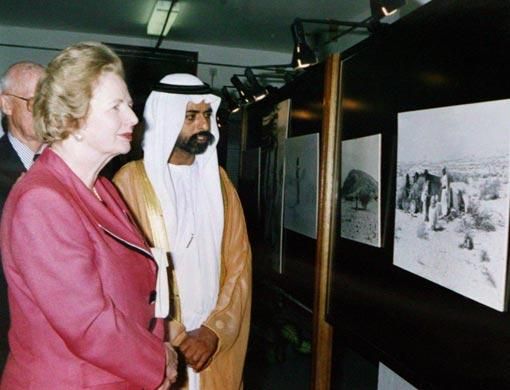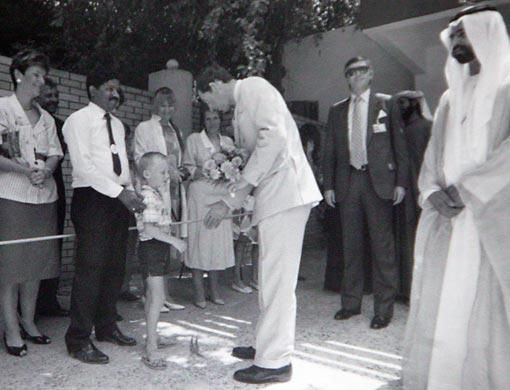Abu Dhabi: Abu Dhabi centre celebrates its 40th year in English language education as it diversified to young learners, adults, teachers and companies.
"The police had surrounded the British Council at the time. There were helicopters buzzing around the building," said Mohammad Packir, assistant examiner, when asked if he remembers any interesting events over the years.
This was during the Gulf War. There were 110 students taking their examinations at that time.
"All nearby outlets were asked to shut down for the safety of the children. It was an experience that I will never forget," he said.
Packir joined the British Council in April 1979 as an office boy. He worked hard over the years and his dedication to his job paid off. He was made an exam assistant at the council's teaching centre.
Since then, Packir has collected and reviewed over 250,000 student records. He has seen more than 500,000 students pass through the council's teaching centres. "I have met a lot of students from the Ruling Family and till this day when I go into a bank or a company, people stop me and talk because they remember me from the time they were students," he said.
"When I arrived at the the council, there were only four employees, now we are 34. I have gone through eight directors and four regional managers in four locations," said Packir.
During the interview, Packir shared some memorable photographs with Gulf News. One photograph is of Prince Charles, Prince of Wales, during his visit to the council in 1990. Another is a 1992 shot with former British Prime Minister Margaret Thatcher and Shaikh Nahyan Bin Mubarak Al Nahyan, Minister of Higher Education and Scientific Research.
Among his collection is an article with his photograph, published in 1981 by the first English newspaper in the UAE, Emirates News. He also keeps his very first invitation sent from the council country director inviting him to his home in 1979.
No air-conditioned cars
Kader Shamsudeen, the second oldest staffer of the British Council in the UAE, arrived in Abu Dhabi in 1981 to join as a driver.
"When I first arrived, I remember it was bad driving around the city. There were no proper roads, it was mostly sand. There were no air-conditioned cars, no proper lighting system during the night and plenty of camels crossing roads. It took over three hours to reach any place," said Shamsudeen.
In 1989, Shamsudeen was one of the first employees at the council to receive a phone. "That phone was heavy, but I had to use it for official purposes. That facility was not available for any other employee. I was privileged."
The council's space requirements are increasing by the year. "Demand has outgrown the capacity of the current premises," said the country director. Employees will once again move to a newer and bigger location in a few months.
The British Council Abu Dhabi celebrates its 40th anniversary this year.
The council was housed in four different locations since 1969, two of which have since been demolished.
Its courses started off with a basic English language course and it now offers more than 50 assessment products to young learners, adults, teachers and companies.
The first biggest challenge the council faced was during the 1980s when the UAE started to attract international educators. The British Council's status changed from being the only player in English education to one among many others. "Forty years ago the Council was privileged. We were the only players in education and culture. But that soon changed when countries like Australia, Singapore, France and Germany introduced innovative approaches in education and culture to the UAE," said Paul Sellers, UAE Country Director, British Council.
Challenge
In 1990, the Council faced a bigger change when the International General Certificate of Secondary Education (IGCSE) was added to its curriculum, along with the General Certificate Evaluation (GCE). "The change from GCE to IGCSE was a fascinating example of how all the educational systems came together in the UAE," said Sellers.














